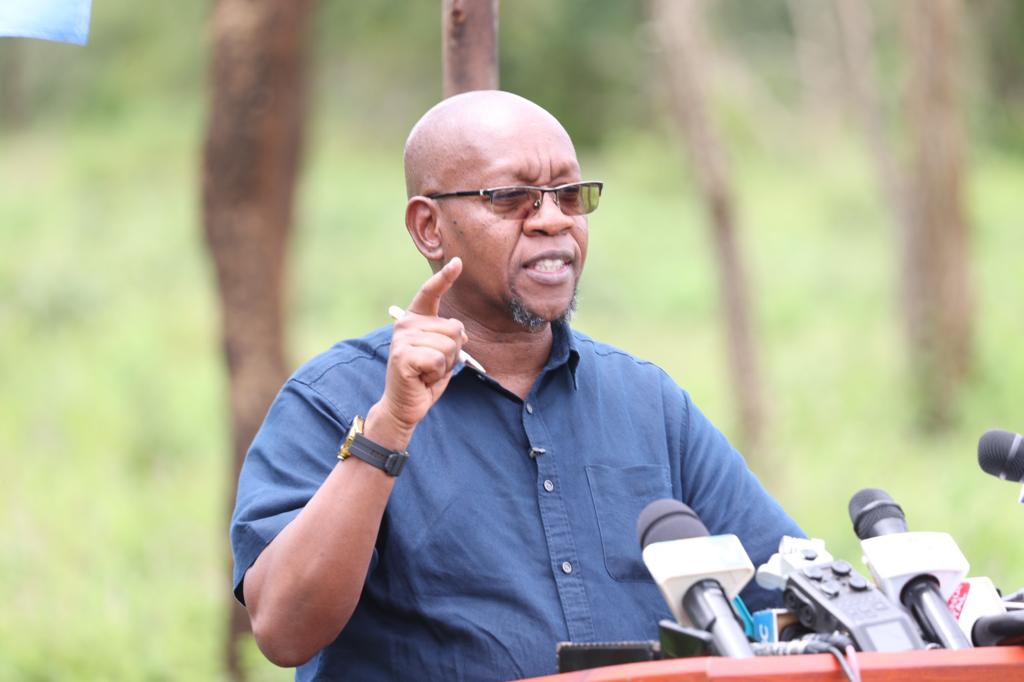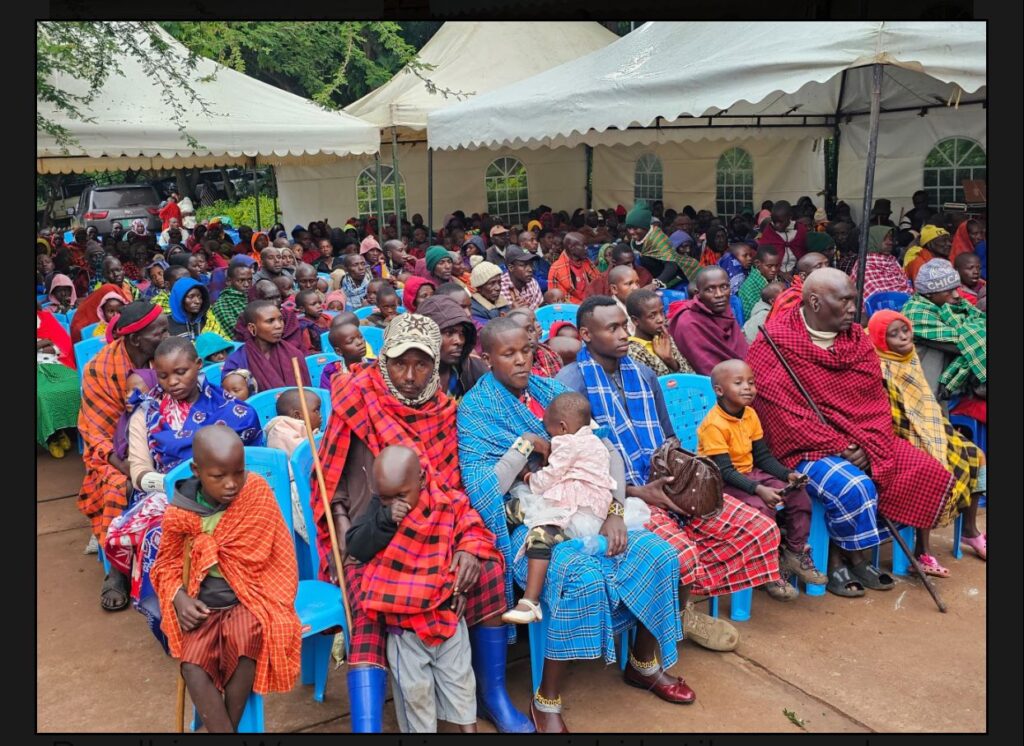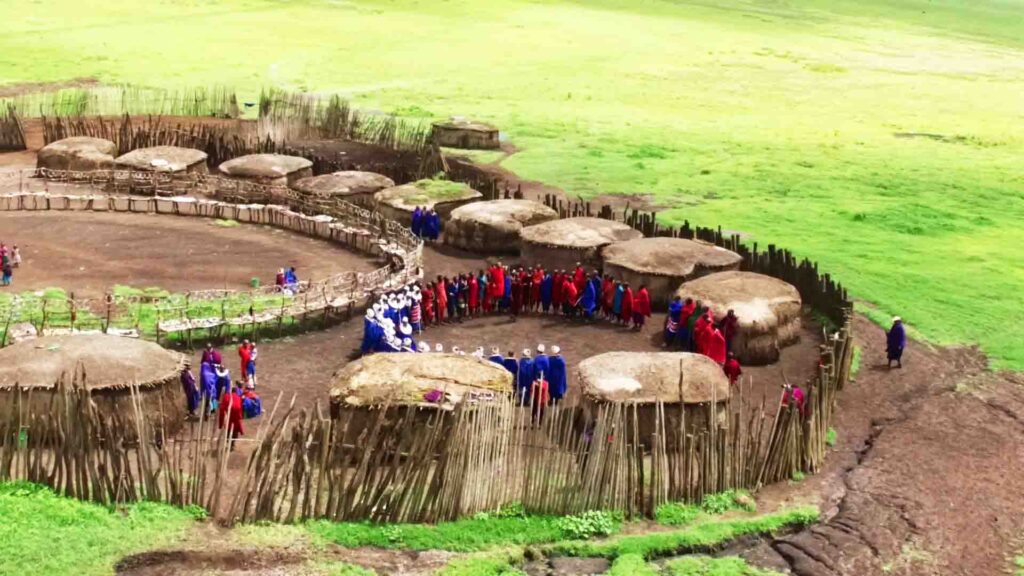The Tanzanian government has expressed concern over the spread of misinformation by some activists, creating fear among residents and impeding the voluntary relocation process from the Ngorongoro Conservation Area (NCAA).
Director of Information and Government Spokesperson Mobhare Matinyi, addressed the issue in Msomera Village, Handeni District, Tanga Region, during a press briefing on a tour to witness the progress of projects preparing housing for the relocated residents.
Matinyi highlighted that certain activists are providing residents with false information, including claims that their livestock will receive poisonous vaccinations if they move to Msomera Village. He also noted other misleading information, such as allegations of forced relocation, violating human rights, causing national and international concerns.
The government, represented by Matinyi, is countering this misinformation by continuing to educate communities about the importance of voluntary relocation. The aim is to provide residents with the freedom to engage in development activities like farming and trade, which are restricted within the conservation area.

The government asserts that the relocation is intended to uplift residents from impoverished conditions, offering them opportunities for development while simultaneously reinforcing the conservation efforts of the area, which are being compromised by human activities.
Matinyi emphasized the adverse effects of residents’ presence in the conservation area, including the transmission of diseases to livestock and interference with wildlife, impacting tourism negatively.
In the second phase of the relocation project, as of January 12 this year, 525 households have voluntarily registered to relocate, with 126 having already moved, and an additional 72 expected to relocate soon.
Residents who voluntarily relocate to the designated areas are provided with essential support, including two bags of maize every three months for a duration of 18 months. They also receive crucial social services such as schools, hospitals, communication, and water facilities.
Assistant Commissioner of Conservation, Monitoring, and Evaluation at NCAA, Lilian Magoma, emphasized the government’s commitment to upholding human rights, following the law, and ensuring the humane treatment of residents during the relocation process.
Magoma highlighted that besides the construction of houses and the provision of essential services, President Samia Suluhu Hassan is offering Sh10 million to each family for further support.
Despite the challenges, there is considerable enthusiasm among residents to voluntarily relocate, with plans to move over 20,000 households in total.
Johannes Tiamas, the Ward Councillor of Ngorongoro, who has relocated to Msomera, emphasized the newfound freedom and broadened development perspectives residents now have, particularly in livestock ownership, farming, and trade, which were restricted in the conservation area.
He urged the government to intensify education efforts for those remaining in Ngorongoro, encouraging them to embrace the relocation for improved lives.
Residents who have already moved shared positive experiences. Meng’atei Molel, who relocated in July 2020, highlighted significant changes in his life, including land ownership, which was impossible in Ngorongoro.
With the funds provided by President Samia, he invested in livestock and now owns 50 cattle and goats. The financial support was also invested in agriculture, providing the potential for a bountiful harvest.
Students like Neema Ming’ata, who completed primary school in Ngorongoro and continued secondary education in Msomera, debunked claims of the lack of educational services in the new area. Neema called on the government to expedite the construction of dormitories for a conducive learning environment.
Edina Yohana expressed her joy at the freedom to move around during the day and night in Msomera. In contrast, when residing in the conservation area, residents had to lock their livestock inside during the night, fearing encounters with wild animals like lions and elephants.
The government remains committed to dispelling misinformation, ensuring a smooth and voluntary relocation process, and uplifting the lives of Ngorongoro residents while safeguarding the conservation area.
As the project progresses, the focus is on completing the construction of 5,000 houses in designated villages by 2024, providing a tangible and positive impact on the lives of the relocated residents.

Why the shift is voluntary
Mr Matinyi said the shift aims at enabling Ngorongoro citizens to participate in the country’s development process as the country implements both national and international development goals, including the Sustainable Development Goals (SDGs) under the United Nations.
“Tanzanians are all human beings who are struggling for their development. But Ngorongoro residents are denied this opportunity due to the presence of tough regulations because they reside in the conservation area,” he said.
He said, for instance, that they cannot get power connections from the Tanzania National Electric Supply Company (Tanesco) or water distribution from executed projects; instead, they get electricity from solar sources as well as water from bore wells.
Furthermore, he said the number of schools and health facilities was limited, and the construction of permanent houses and tarmac roads in the conservation area was also restricted.
“The government has found that it is enough for Ngorongoro citizens to live a poor life. That includes compromising their security due to the presence of wildlife attacking people and livestock, despite other dangers of disease transmission from wildlife to livestock and wildlife to human beings,” he said. Secondly, Mr Matinyi said the government would like to preserve the Ngorongoro conservation area, which was among the United Nations Educational, Scientific and Cultural Organisation (Unesco) recognised areas.



You have mentioned very interesting details!
ps decent website.Raise your business
My website; Sabine_V
Can you be more specific about the content of your article? After reading it, I still have some doubts. Hope you can help me.
Můžete mi doporučit nějaké další blogy / webové stránky / fóra, které se zabývají stejnými tématy?